The mobile child protection units of Chad’s refugee camps
More mobile child protection units are needed to address the needs of refugee adolescent girls and children. Blog by Deployable Communications Specialist, Shreeram KC, in Adre, Chad.
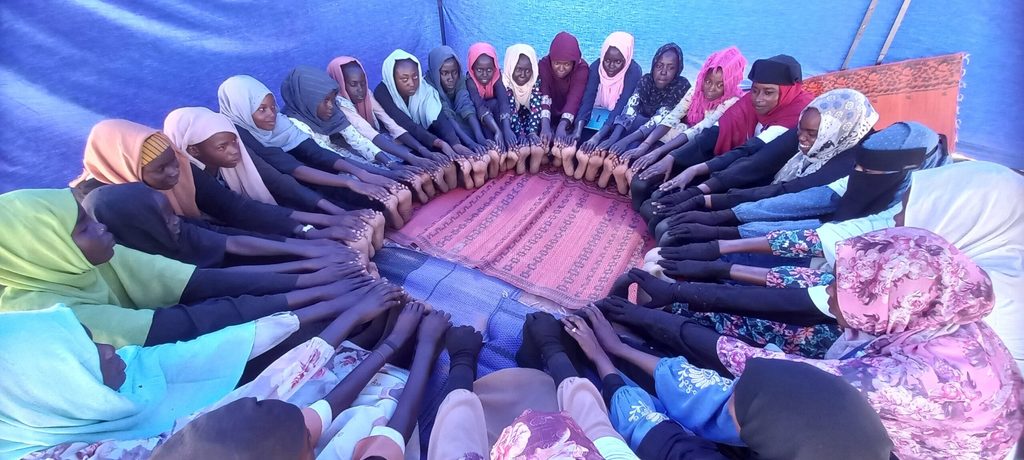
In the sweltering heat of Adre’s refugee camps, children eagerly seek shade while their enthusiasm of learning remains undimmed. Amidst the crowds of students, they each pay attention to their teacher, reciting alphabets and shouting out words with determination, striving to remember and participate. Children have an opportunity to play, sing, dance and relax together, interacting as if it were a typical school environment. This happens each week in the mobile child protection unit which is run to support the Sudanese refugee children who have arrived in Chad.
An educator (who are referred to as animators) assists, supporting them with their questions. There is a younger children’s group aged 5-7, who sit together, learning alphabets, numbers and playing, and an adolescent girls’ group of about 40, who learn English numbers.
There is a large area of sand is near to the tent where the children play, and young girls are playing volleyball. For some, this is the first time they have touched a ball.
After, the young learners return to their makeshift shelters. They do not rush to leave. One of the animators, Eslam says: ‘These children love to come in our unit to learn and have fun. They have no other place to go.”
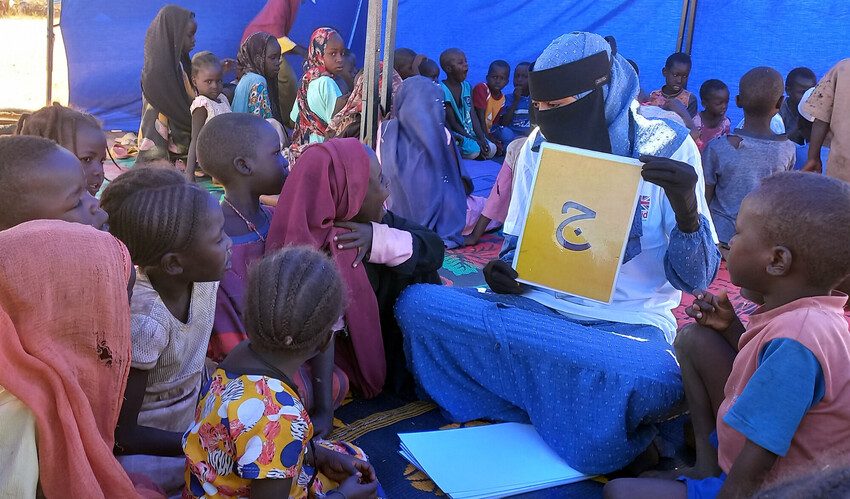
Once the first session is over, the animator team takes rest and have their breakfast. They eat local bread, pieces of chillies, and some pickled peanuts. The seven-member team, refugees themselves, eat together and review the session where they could further improve and plan for the next one.
Young girls enjoy the most at the unit
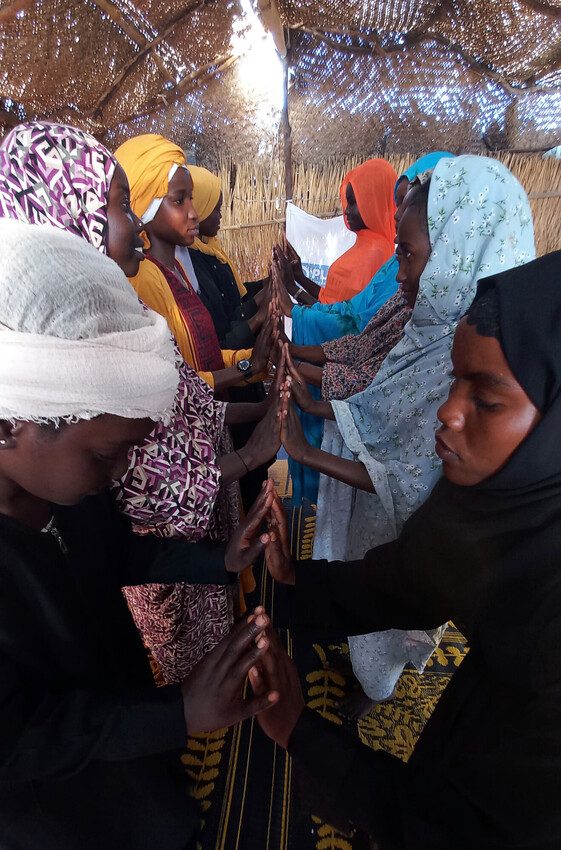
Around 1pm, the adolescent’s girls group arrive. The session for the day is about relationships. The educators ask them to write to someone they most trust and present back to the group. Before ending the session, they play a game; ‘lotus’ to teach how to cope and manage with stress. They make a circle together, press legs by hand, count 1 to 10, then leave hands.
We cannot know everything they have been through on their journey to Chad, so it is important to teach them these mechanisms for their wellbeing. I see an immediate impact – their faces shine as they appear more energised. Before coming here, the girls had not recognised each other. Now they have become friends and peers, building bonds and relationships.
The mobile unit also runs session on storytelling, drawing and dance and has been a safe space for those attending. I can see it is popular – no one wants to miss it.
Refugee women running the protection units
The refugee women run these units, facilitating the sessions and engaging with its participants. They have all received safeguarding and protection training from Plan International Chad – ensuring they are equipped with the tools and knowledge to support the students. One animator, Om Mahana says, ”the training helped us to build our confidence to operate the units.” However, when they first arrived in Adre, they faced a lot of challenges.
The team leader of the unit Aiasha recalls, ”I don’t want to remember the bad days, we have worst memories after the conflict. We remained 3 days hungry, eating nothing and just cried, we didn’t know anyone here. Life was too bad for us.” By profession, Aiasha is a nurse, but due to conflict she left Sudan. She lives in Adre and has been a refugee since last year. She doesn’t know when she will be able to return home.
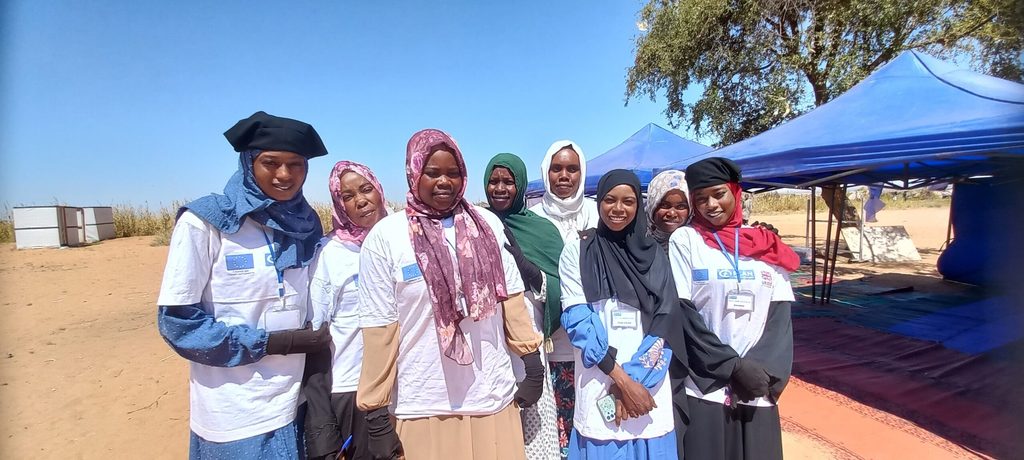
There are thousands who have gone through the same challenges. In Adre, every makeshift shelter has their own stories of difficulties and resilience. I see their lives unfolding, children fetch water in jerkin, a mother cooks in the open space with basic tools, a young girl is clean the surrounding area, adult men sit in the shade or go to seek employment in the market. Many wait for humanitarian relief for survival.
Behind every makeshift shelter, there is story of loss, endurance and unyielding hopes. Girls stay in tents, taking care of their siblings who don’t have enough to eat. No school to study in. Treatment is far away if someone gets sick. Malaria is present here. I can see increasing numbers of malnutrition due to poor diet.
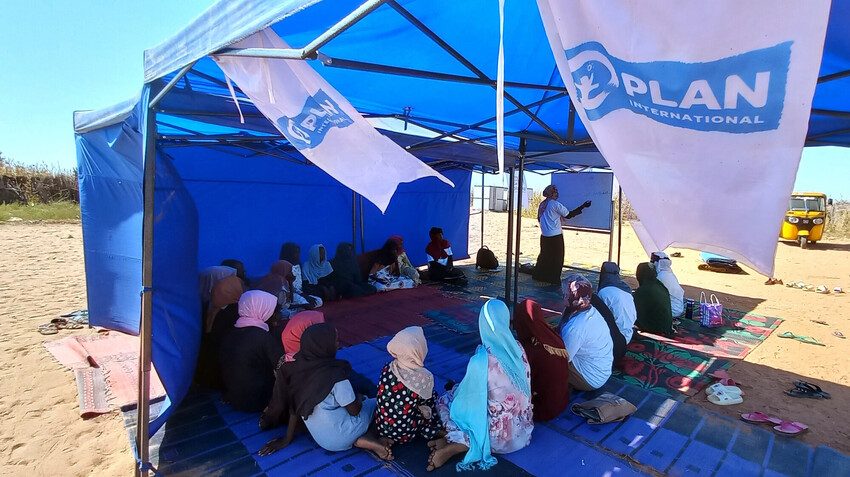
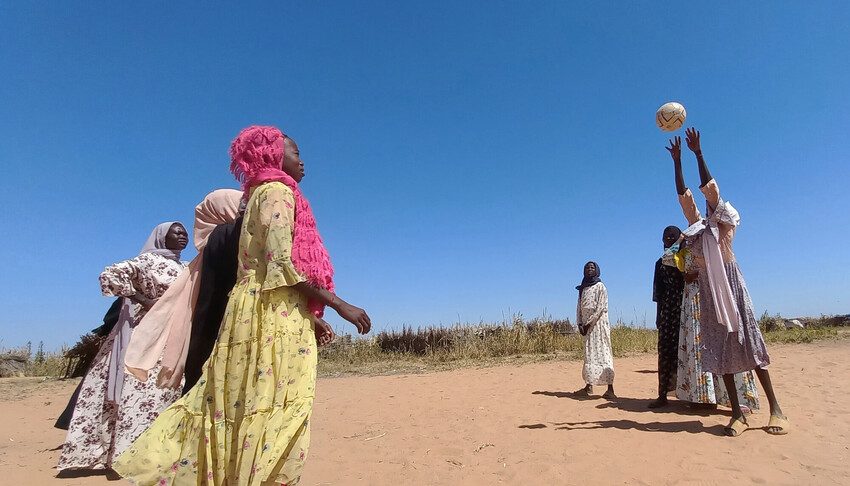
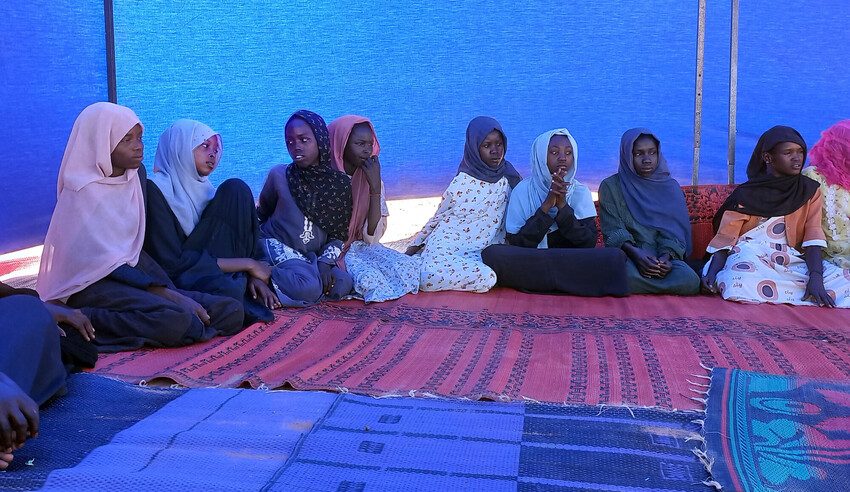
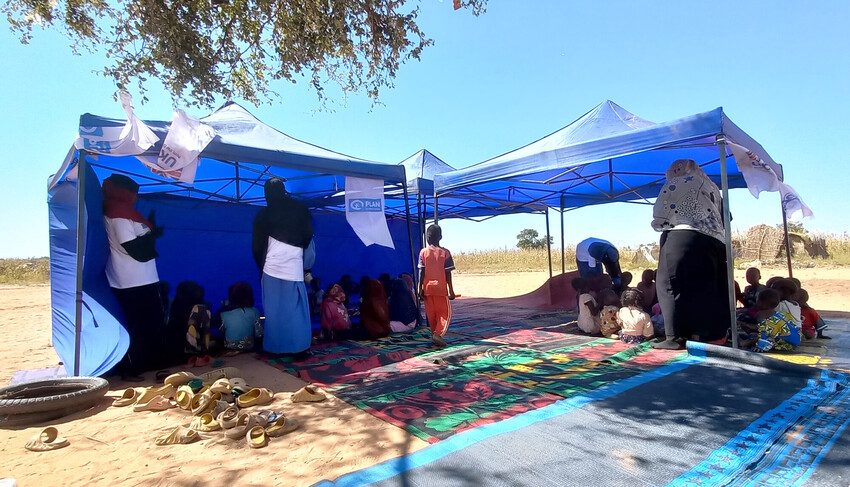
Since May 2023, Plan International has been present – responding to the crisis, prioritising education and child protection. Collaborating with local partners, the response has reached over 12,411 refugees and host communities (57.95 % are girls and women) through its humanitarian response in Adre.
Adre is on the border between Sudan and Chad in the eastern part of the country. Currently, it hosts 237,000 refugees, over 90% are girls and women. The site is overcrowded, and people are forced to live in extremely harsh conditions with limited food, water and shelter.
Plan International is putting in efforts to address the needs of adolescents’ girls through the mobile child protection unit. This is one of the unique approaches to provide a safer learning space for girls and young women. This unit offers essential protection services, including psychological first aid, recreational activities and positive peer support. Currently, 5 such units are running, benefitted about 5,000 people including girls and young women since its set up in September 2024.
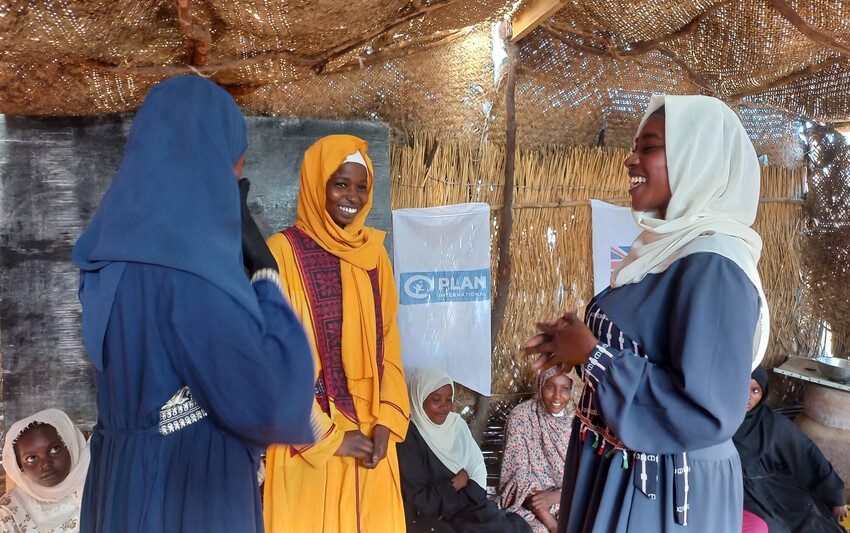
Dreams that should not be shattered
Monira, a 12-year girl who participates at the unit, wants to be a doctor, but has been missing school since last year. Retij, 12, a grade 5 student also at the refugee site, has the same ambition. Another girl Fatima, 15, has a similar aim, however, says, ”We are safe and living in peace in Adre. At least, here is no conflict but living here is the most difficult.” Mehad, 16, who lost her family members while crossing the river during the travel to Adre, doesn’t want to go back to Sudan. She says, ”Many people here don’t want to go back to Sudan because of the fight.” She wants to be a surgical doctor to help the sick people, however, worries how she could fulfil her dream being a refugee and not having education in the camp.
All the girls I met in Adre refugee sites have dreams to make their lives a better one, however, they are anxious if that can be achieved. Leaving Sudan they thought they are now safe, but being a refugee and living with mounting challenges, they are much worried about the future.
As the sun goes down, the group sings a song of hope and continuity of education. Amidst the chaos, their laughter brings us all a much-needed moment of joy. There are thousands of other refugee children from this conflict who need help for their education and safeguarding, so that they can still realise their potential, despite the difficulties they face.
Plan International is aiming to increase the number of such units, however, resources are limited, we need more funding to scale up our response.
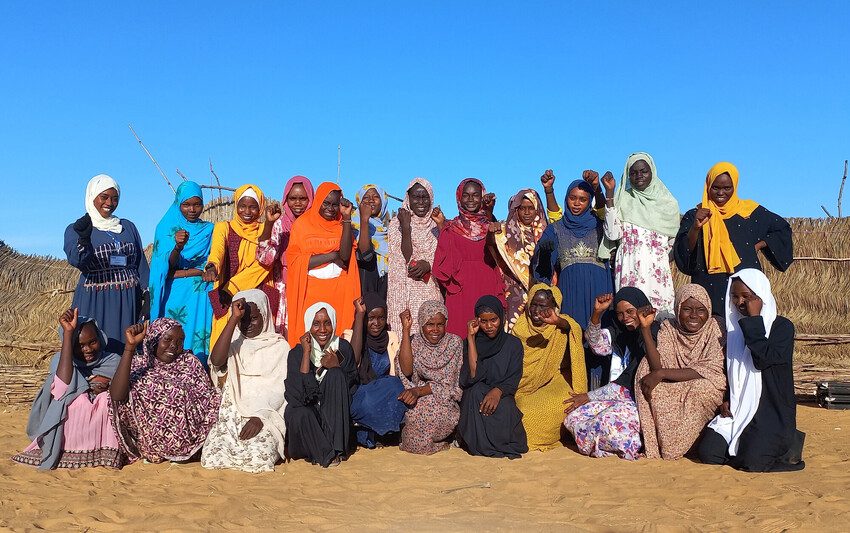
Categories: Emergencies


